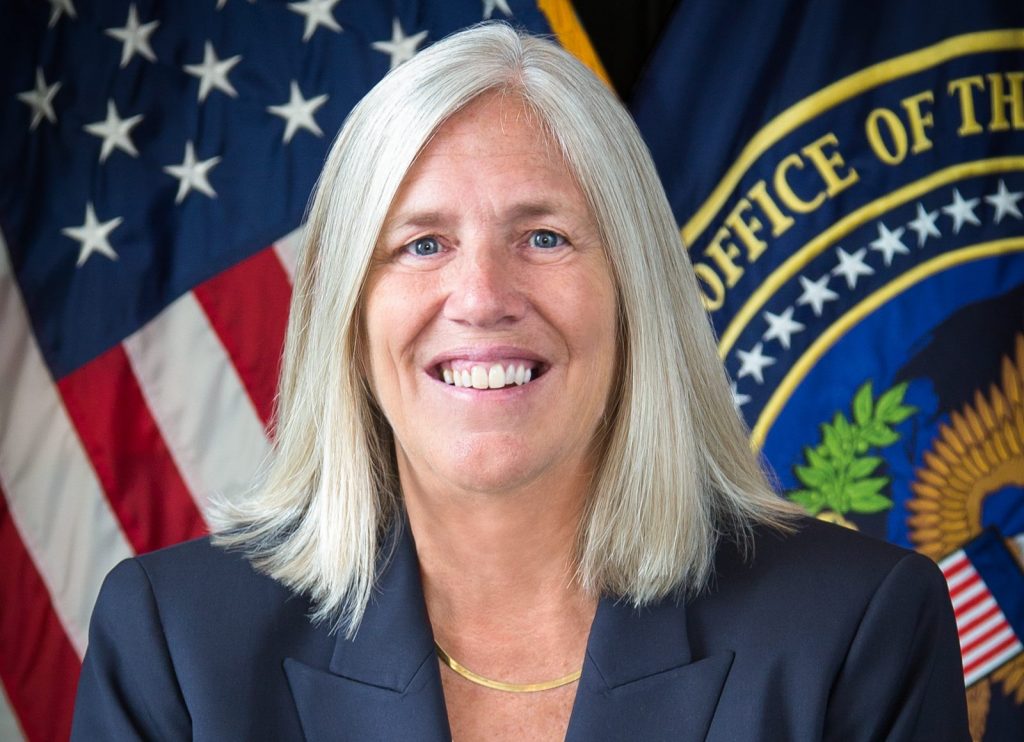
Sue Gordon
WASHINGTON: The Intelligence Community needs to be willing to ingest data from any source to unleash the power of artificial intelligence (AI), and to provide decision-makers with rapid, in-depth insights they can use, says Sue Gordon.
“We need to be able to use more data, and trust the data we use. That is a really hard thing for us,” said Gordon, who recently stepped down as principle deputy Director of National Intelligence after being passed over by President Trump to serve as acting DNI. “But if the intelligence community just stays with the data that we understand, in the way that we have, we will not be able to get to the future.”
Speaking today at the annual Kalaris Intelligence Conference on intelligence at Georgetown University, Gordon explained that the ubiquity of data and the emergence of AI will allow the US to stay ahead of adversaries — if the IC embraces it.
The value of AI, she said, lies in its ability to rapidly sift through mountains of data — “to use the bigness of the data” — to find key information, patterns of activities and behavior, and to “understand trends in ways that we can’t see.”
Getting the best out of AI requires an enormous and diverse data pool. To develop this, the IC needs to figure out how to “make integrated data cost free. Right now it costs way too much to bring a whole bunch of data streams in,” she said.
“That means the data owners are going to have to understand that they don’t actually own the data — it’s owned by the community. And we can define community, and we can define ever-expanding rings of community, but we’re going to have to figure that out.”
Specifically, she said the IC has to change its internal “data ownership” culture. “We’ve gotta get away from people thinking that because they were responsible for collecting it, they are the ones who get to determine how it’s used.” In addition, she said, a change is needed so that “the people who are collecting data don’t get to decide how it is collected; it has to be collected with use in mind.”
She noted that on the latter point, IC ‘customers’ within government, such as the State Department, should be less reticent about asking for data they instead of passively accepting data they’re given. Further, she said, the IC and its government partners, including the Defense Department, need to ensure data flow among themselves. In the future, she believes, there won’t be “hard barriers between intelligence, policy and operations.”
In addition, Gordon suggested that the IC should consider the benefits of creating an independent center of innovation for improving its use of unclassified, open source data: “The data are already there, and it is hard for the Intelligence Community to use unclassified information. So that’s an area where we might want to look at actually creating something outside.”
After her presentation with Ellen McCarthy, assistant secretary of state at the Bureau of Intelligence and Research, Gordon noted a few key areas where early AI capabilities are already aiding the IC. These include analyzing geospatial intelligence, with Gordon giving her former boss, former Director of the National Geospatial-Intelligence Agency Robert Cardillo, a shout-out for being in front on showing the IC that “AI could work.”
Gordon said that the IC is starting to use AI to sort through “massive amounts” of information to find useful nuggets much faster, as well as to broaden its intel gathering scope. “And that’s true in finding things that are existing geospatially; it’s true in terms of being able to identify voices in those types of communications; but it’s more about being able to find things you care about, and that you understand, in wide swaths of data.”
She added that the IC is just beginning to use AI for network security, both to protect networks and to find gaps that need to be fixed. Finally, she sad, the IC is working with industry to become “fast followers” in areas such as facial recognition.
Major trends and takeaways from the Defense Department’s Unfunded Priority Lists
Mark Cancian and Chris Park of CSIS break down what is in this year’s unfunded priority lists and what they say about the state of the US military.


























